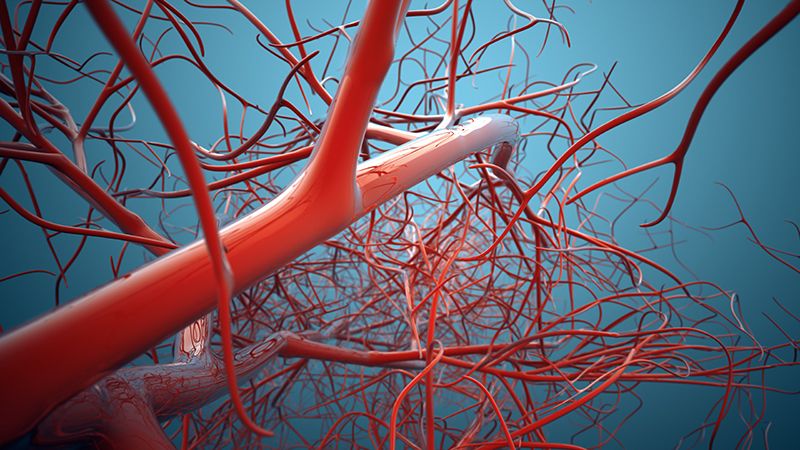
Steven Segal, PhD, a professor of medical pharmacology and physiology at the University of Missouri School of Medicine, has received a 2019 Transformational Project Award from the American Heart Association. Segal is investigating how eating a Western-style diet — which is high in calories, fat and processed sugar — affects blood vessels.
The grant is for $300,000 over three years. The AHA’s goal with this award is to support innovative, high-impact research that could lead to discoveries or advancements that accelerate treatments for cardiovascular disease with an emphasis on stroke.
Segal’s laboratory is studying the effect of the Western-style diet on the small arteries that supply blood to skeletal muscle and brain in a mouse model. Typically, a diet high in fat and processed sugar is considered harmful for vascular cells. However, Segal and his team have discovered that when exposed to hydrogen peroxide — which is a reactive oxygen species produced during oxidative stress that can damage cells — mice that ate a Western-style diet for several months had skeletal-muscle arteries that were more resilient than the same vessels from mice that ate a balanced diet.

“Our hypothesis is that by chronic exposure to oxidative stress associated with consuming a Western-style diet, blood vessels develop resilience in order to remain functional in controlling blood flow and regulating blood pressure,” Segal said. “The questions that we're investigating in this project focus on whether this adaptation also occurs in arteries supplying the brain — as shown in our preliminary data — and what is the actual mechanism of protection.”
Charles Norton, PhD, a postdoctoral fellow in Segal’s lab, co-authored the grant proposal. His goal is to identify signaling pathways that will reduce cell death and improve vascular function during acute injuries associated with oxidative stress. These include the restoration of blood flow after ischemic stroke, myocardial infarction and tissue transplantation.
“To avoid confusing people, we're not saying that a diet high in fat and processed sugar is good for you — it’s just that it results in vascular cells developing resilience to situations when you have acute oxidative injuries,” Norton said. “It's like the arteries are preparing for those types of events, such as stroke or heart attacks.”
Ultimately, Segal’s goal is to understand how vessels become resilient to oxidative stress and how that translates to treating vascular disease.





